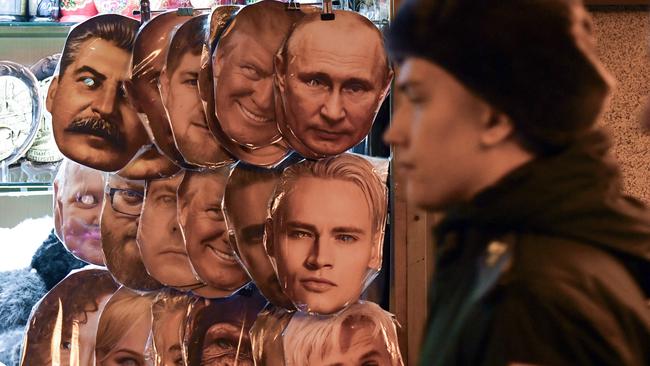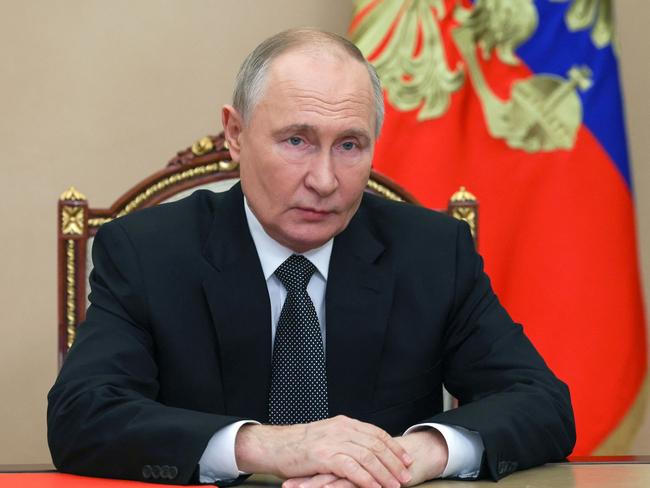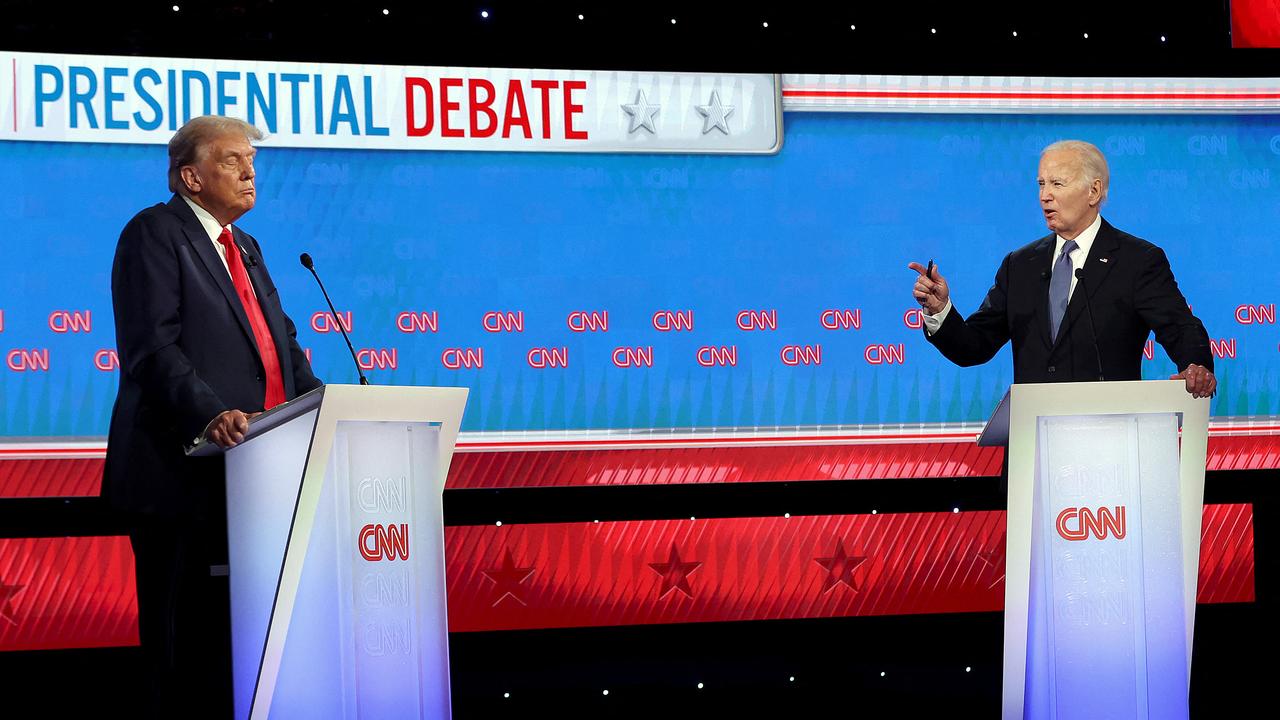This may be the best book I’ve read this year
This story is so unusually brilliant, so unique in structure, so ludicrous, hilarious and ominous at once, that it’s hard to believe it’s a work of 21st-century Australian storytelling.

The Thirty-One Legs of Vladimir Putin is so unusually brilliant, so unique in structure, so ludicrous, hilarious and ominous at once, that it’s hard to believe it’s a work of 21st-century Australian storytelling. For sheer invention and tight artistic panache, it stands out from the trolley of local releases like a Christopher Waltz appearance on an episode of Home & Away. Most excitingly, though, it’s a novel that, should it be a smash hit, could actually make a difference around here, as it breaks down so many of the tiresome stockades that have corralled Australian fiction for decades.

The setup is the kind of absurd idea that parachutes into a conversation late at night over too many drinks (I’m reliably informed that’s more or less what happened) and is usually forgotten in the fog of a morning hangover. Fortunately, co-authors PS Cottier and NG Hartland decided to hit the sack early enough to wake and push on with it, exploring the concept down a maze of “what ifs”, each one as ridiculous as it is eerily believable.
The 31 chapters are supposedly written by an international cast of ordinary boobs – shop stewards, public servants, bartenders and such – who all have one thing in the common; they look the spitting image of Vladimir Putin. So much do they resemble the Russian leader that they’ve somehow come to the attention of the Kremlin, each doppelganger receiving a visit from some spectral Cold War throwback who makes them an offer too good to refuse; a generous monthly payment to do nothing but wait until they are called upon.


The “double agents” are then left, sometimes for years, to ruminate upon what their mission might be – to make an appearance too dangerous for the Russian imperator, to shake hands with world leaders at a UN summit Putin himself couldn’t be bothered to attend, or to simply wave from some balcony or other while Vlad seizes the opportunity to have a sneaky cigarette out the back. The possibilities are as endless as their enthusiastic, sometimes paranoid, imaginations.
Like so many episodes of Charlie Brooker’s Black Mirror, the sport comes not from humour per se – there are plenty of gags in the language, for sure (one prominent Russian having “fallen” from a high-rise window is described as having taken the “oligarch elevator”) – but from the very notion of the plot itself and the preposterous situations that are born of it. One “Putin” is tracked down on a leisure cruise ship, a comedian sharing the stage with a fake Kim Jong Un. Another is the star attraction at a tawdry New York strip club (“And now, the world’s biggest dictator”), who spots his grim-faced future handler seated motionless among an audience of squealing women.

The writing itself is a peculiar hybrid of hard-boiled pace and literary elegance. Cottier is a poet of some note, and Hartland has a bent for criminology, so that figures. One melancholy chapter, told by the Norwegian widow of a “Putin” who, drunk and exhausted by the charade, went for a walk and lay down in the hypothermic comfort of a blizzard, describes how he “promised to stop, but it was as if each new glass might be a magic one, containing a spell that would give him the willpower to make it his last”. He never did find “that enchanted drink”, the woman writes, leaving her with nothing but memories of “the us that existed before he succumbed to the doubletalk of snow”.
Though each chapter stands on its own, the book turns out to be more than just a series of vignettes. One early chapter features an accountant from Chile, aroused by the chance of some excitement in his life, rehearsing his role for months before being disappointed when he sees Putin attending a ceremony nearby. “In my darker moments,” he writes, “the thought that possibly another Putin was used in my place creeps into my head. I find it impossible to believe that they could have sourced a Putin of equal or greater quality to me in Chile.”
As the book nears its final chapters, with the Russian leader appearing sick and rumours of his death abounding, what once seemed comically delusional becomes a very real problem for the imposters-in-waiting, who begin to realise the world may soon be inhabited by more than a few too many Putins. Panic and farcical chase scenes ensue. What was once a camp folly is suddenly haunting, menacing, and a shock.
To call it a riot, a wild ride, is to sell this thoughtful and muscular bit of fiction short. To declare it an “Australian masterpiece” doesn’t wash, either, but only because it ticks none of the boxes we know and love. It’s a shorty at just 115 pages, with no fat reserved for quests for belonging or interminable extrapolations of landscape and memory – the “sense of place”, as the wallies refer to those Patrick White tribute acts that perform each year at awards ceremonies. What we have here is a terrific story, executed beautifully and imaginatively, in which everything that’s wrong with Australian fiction today cannot be found. There is not a bad chapter in The Thirty-One Legs of Vladimir Putin, and a delight of some sort – usually many – on every page.
Even when the novel is completed, the acknowledgments dealt with and the obligatory cataloguing performed, we get one last laugh from the legalese that ends every work of lesser fiction: All characters in this publication are fictitious and any resemblance to real persons, living or dead, is purely coincidental.
The Thirty-One Legs of Vladimir Putin is this year’s winner of the 20/40 publishing prize for fiction, for works between 20,000 and 40,000 words. The prize is publication.






To join the conversation, please log in. Don't have an account? Register
Join the conversation, you are commenting as Logout